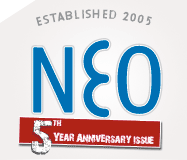 |













|
 |
|
Science-Challenged America Must Reclaim Its Hellenic Roots

|

|
An oddity of American culture is what the nation's higher education system calls "Greek life." These are student organizations with Greek-letter names. Going back to the birth of the Phi Beta Kappa Society in the 1700s, they have been associated with academic excellence, bullying, snobbery and elitist cliques retaining influence long after college.
By N.J. Slabbert
Whatever their merits or flaws, their most remarkable feature is that they have nothing to do with Greek life, at least to any extent involving knowledge of Greece's language, history, ideas or traditions.
America's intellectual fabric is riddled with such murky Hellenism—an intuitive reverence for Greekness accompanied by ignorance of why this should be. The phrase "it's Greek to me", dating at least to Elizabethan times, has long implied not just incomprehensibility but also mystique and superiority. Philosophically and culturally, ancient Greece loomed large in the imaginations of America's founding fathers when they sought to differentiate themselves from the Europe of their day yet retain a sense of history that reflected their new republic’s values.
A visible expression of this was a fascination with neoclassical architecture. From Thomas Jefferson's mansion Monticello to the nineteenth-century Greek revival, Greco-Roman domes, pillars, friezes and other forms conveyed the stately tone Americans wanted for their national signature. In banks, wealthy homes and government icons like the Capitol and the White House, Grecian touches came to signify American gravitas. The Chicago World’s Fair of 1893, a pivotal event in the U.S.’s identification of its national purpose with science and technology, embraced this Hellenic theme with a dazzling panorama of classical structures called the White City. In an ode to it, editor-poet Richard W. Gilder wrote: “Ah! happy West—Greece flowers anew, and all her temples soar!”
What became of this Hellenic mood? The twentieth century happened. An avalanche of social and economic circumstances buried many early signposts of America's national identity. By the 1930s cracks were appearing in the country's perceptions of itself. By the 1960s confusion reigned. But folk media often reveal enduring cultural realities, and telling vestiges of America's popular Hellenism continued in comic books and movies, like the phantom limb phenomenon, in which the brain persists in feeling an arm or leg after it has been amputated. 1939 saw the advent of the hugely popular superhero Captain Marvel, whose powers came from mythic Greek heroes like Hercules, Atlas and Achilles. For a while his comic books outsold Superman. In 1941 the comics welcomed Wonder Woman, a member of Greece's legendary tribe of female warriors called Amazons. (Her author was a psychologist who contributed to the development of the lie detector.) Hercules has been a fixture of the Marvel Comics universe for decades. Troy (2004) and Clash of the Titans (2010), movies based on Greek fable, have been box office blockbusters.
|
|
By affecting a lofty professional indifference to moral values, and by allowing science to be dominantly represented by writers who emphasize debunking over inspiration, scientists have failed to explain the difference between skepticism and nihilism.
|
|
America's resonance with Hellenic themes on a deeper level became clear to me in 2008 when I began a (still proceeding) investigation of the role of science and invention in U.S. economic growth with Aris Melissaratos, director of Johns Hopkins University’s technology commercialization. I learned that America’s economic health depends on its inventive capability, that the nation’s scientific advance is heavily rooted in the Hellenic intellectual tradition, and that America’s disturbing scientific decline (see, e.g., the National Academy of Science’s 2010 report Rising Above the Gathering Storm Revisited) is due at least partly to the dwindling of that tradition.
Although it seems counterintuitive to relate highly practical twenty-first-century events to philosophical concepts with ancient sources, compelling evidence shows that America’s urgent need to recover its former innovative momentum is a battle of abstract ideas that transcends calendars. For example, although our Greek heritage contains many different philosophies, one of its most potent ideas overall has been that scientific progress and social vigor are inextricable. In the late nineteenth and early twentieth centuries this notion was powerful in the U.S. It then evaporated in favor of a belief that societal progress was independent of science and could be safely left to lawyers and investment bankers seeking short-term profits. As a result, America coasted for decades on legacy technologies, finally hobbling into the twenty-first century in a state of both economic and scientific crisis.
Then there is the question of science’s ethical character. The first military use of the atom bomb, against Japan in 1945, suddenly painted science in horrific moral colors. This erosion of science’s moral stature was exacerbated by public concern about the environmental effects of technology; scientists were branded as lackeys of evil corporations. Cultural critics argued that scientific worldviews represented various forms of exploitation and prejudice. Science‘s moral high ground crumbled, and America entered the twenty-first century with a population not just largely ignorant of science but, in significant measure, hostile to it: a nation of Luddite pressure groups, entertainments glorifying irrationality, and a booming market in New Age superstition.
These trends have expanded into a vacuum in the intellectual marketplace created by science’s feeble public defense of its stature as a source of truth, human relevance, dignity and moral grandeur. By affecting a lofty professional indifference to moral values, and by allowing science to be dominantly represented by writers who emphasize debunking over inspiration, scientists have failed to explain the difference between skepticism and nihilism. This has made science repellent to many. The great tragedy of science in our time is that scientists have played into the hands of the forces of unreason by surrendering the presentation of their work as a philosophically satisfying adventure in civilization-building, and as a profoundly exciting journey of the human soul. To regain their lost ground now, scientists would be greatly helped by recovering science’s humane historical roots. Science is more than a quest for grants and research jobs. There is nothing wrong with either, but to function effectively in society scientists must remember that what they do, even at its most pedestrian, has historical drama, spiritual content, even poignancy. Science’s public communication has degenerated into entertainment and its most thoughtful practitioners struggle to find a convincing moral voice. But there is an immense opportunity for them to offer their methods and results as a continuation of that great Hellenic story of free rational inquiry that is the ancestor of not only modern science but also the democratic ideals of American life. No less than the Judeo-Christian tradition, which it overlaps, the Greek legacy is a spring that has fed the American mind at its best. It is time for science and America to drink from it again. When Santayana warned that “those who cannot remember the past are condemned to repeat it”, he omitted an even worse consequence of historical amnesia. If we forfeit our heritage, there may not be much of any kind of future at all.
N.J. Slabbert is co-author of Innovation, the Key to Prosperity: Technology & America’s Role in the 21st Century Global Economy (2009), and creator of the book-film-web project The Sword of Zeus: The Hidden Story of How Greece Shaped World War II.
|
 |
|
|
| ©2010 NEOCORP MEDIA |
|
 |
|
|
|









 |